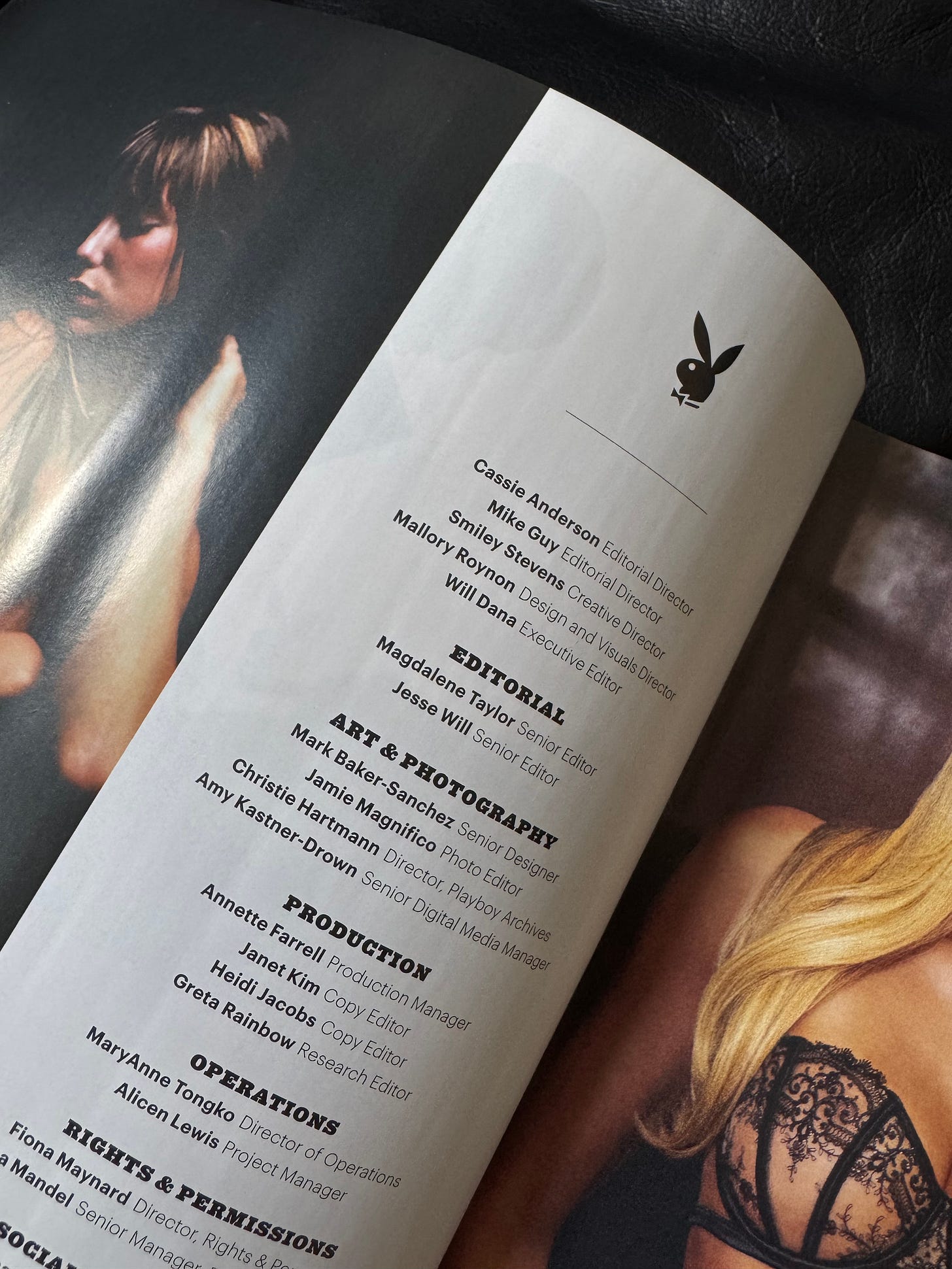We're Not Supposed to Be Thinking About Ourselves This Much
Desire Digest 0011: more notes on vulnerability and embarrassment, that one "The Chair Company" scene and the merits of "may I meet you?" as a pickup line
Hello and welcome to Many Such Cases.
As you might have seen me share, the latest issue of Playboy on which I served as Senior Editor and wrote several stories is out now. You can find it at Barnes and Noble, or Casa and Iconic Magazine if you’re in NYC. In it, I have a profile of Aella (which she said might be her favorite piece of writing on her!) as well as a feature on the infamous Bop House. Hopefully, those stories will be online soon, but it’s been one of my greatest privileges to create these stories for print.
Here’s what else I’ve been thinking about lately, though.
Why Everything and Nothing is Embarrassing
Last week, I attended a panel hosted by the dating app Hinge on the state of Gen Z dating. The panel built upon the app’s recent release of their second "D.A.T.E. Report,” or Data, Advice, Trends and Expertise, and emphasized the central theme of “the communication gap.” According to their data and analysis, Gen Z in particular is craving deeper, more intimate communication, yet is even more hesitant than Millennials to initiate it.
Wrapped up in all this is a lot of interesting anecdotes on gender and vulnerability — there’s a discrepancy, for example, between women’s perception of men’s desire for deep conversation and men’s actual desire for it. Overall, men are more interested in meaningful conversation than women expect. But at the same time, men are more likely to report fears of being “cringe” in asking these questions, and more likely to abstain from doing so.
Despite all this anxiety over vulnerability, one theme that was repeated by some on the panel was that Gen Z is broadly experiencing vulnerability fatigue, as though they’ve been so vulnerable for so long that they’ve become exhausted by it and given up. One of the specific terms used was actually “vulnerability hangover.” That’s telling — we’ve drunk too much from the well of vulnerability and now we’re sitting in the discomfort of the aftermath. On the surface, this contrasts with what I also wrote just last week, that we’re experiencing a crisis of vulnerability wherein no one is willing to be vulnerable. If we scratch a bit deeper, though, I think it’s all one in the same.
We have a completely polarized relationship with embarrassment. On the one hand, we’ve built a culture that seeks to “normalize” all of our worst behaviors — over spending, bed rotting, doom scrolling, whatever. We’re not embarrassed when we annoy our neighbors on the train while watching TikToks out loud, or that we haven’t cooked a meal at home all week. At the same time, our personal lives and our sense of self is riddled with fear of embarrassment. There is continuous suspicion of other people’s intentions and neuroticism over our own. One telling anecdote from the Hinge report is that half of Gen Z says that social media has made them more hesitant to be emotionally open.
What all of this suggests to me is that embarrassment and vulnerability have been turned entirely inward. They are not emotions that result from outside experiences but feelings that are born inward. We have been liberated by the forms of shame that would require us to value our social ties or a greater good but have been chained to this lesser embarrassment of the self. Social media, for all its framing as social, is often really just a mirror. We’re hesitant to be emotionally open because it would require constant confrontation with our own image. And that, too, is a natural occurrence, an instinctive revulsion. We’re not supposed to be thinking about ourselves this much!
During the panel, psychotherapist and certified sex coach Shadeen Francis said something that struck me: a lot of us feel like the worst thing that can happen to us is having a feeling. “Our feelings are not a danger to us,” she said. Embarrassment, too, is not a danger to us. But it is a signal of something valuable. We shouldn’t be afraid of experiencing embarrassment where it actually counts: treating other people well, seeking connection, striving for something better. We shouldn’t be afraid of the embarrassment of true vulnerability. This growing culture that encourages us to live like we’re the only person with consciousness, though? Embarrassment is a utility against it.
Yes, “May I Meet You” Is a Perfectly Good Pick-up Line




